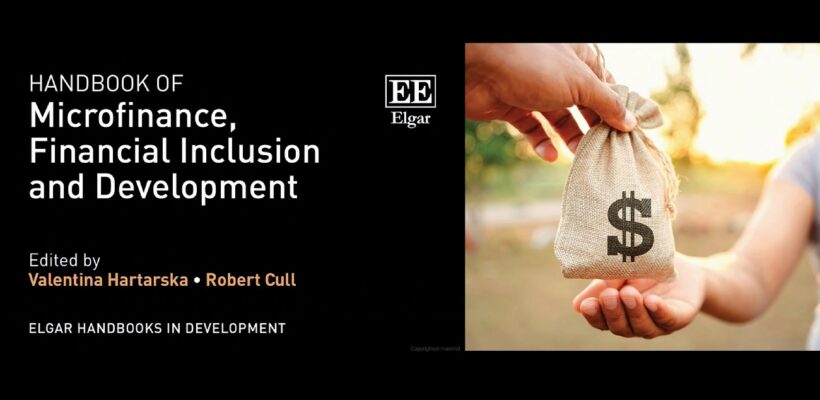
CBE Professors Publish on Financial Inclusion and Poverty in Armenia
< 1 min readYEREVAN, Armenia — The American University of Armenia (AUA) is proud to announce that the Vice Provost for Integration and Associate Professor at the Manoogian Simone College of Business and Economics (CBE) Dr. Knar Khachatryan and Associate Professor Dr. Aleksandr Grigoryan have recently published a chapter in Handbook of Microfinance, Financial Inclusion and Development edited by Valentina Hartarska and Robert Cul.l.
The chapter, titled “Financial Inclusion and Poverty: Evidence from Armenia,” provides a comprehensive analysis of the relationship between financial inclusion and multidimensional poverty in Armenia, utilizing household level datasets for the years 2016-2018. The study identifies three key dimensions of financial inclusion: access to finance, savings behavior, and financial literacy. Multidimensional poverty is measured by income, education, health, living standards, and employment.
As found in the study, the chapter notes that health is the main contributor to multidimensional poverty while income has no impact on poverty. Also, as the regression analysis in the study shows, better access to finance, savings from monthly income, and financial literacy have the potential to alleviate poverty. Nevertheless, excess credit lines are of particular damage to vulnerable households on account of increasing the risk of deprivation.
Overall, the chapter provides valuable insights into the complex relationship between financial inclusion and multidimensional poverty in Armenia. The authors’ research is particularly relevant in the context of ongoing efforts to address poverty and financial inclusion in Armenia.
Founded in 1991, the American University of Armenia (AUA) is a private, independent university located in Yerevan, Armenia, affiliated with the University of California, and accredited by the WASC Senior College and University Commission in the United States. AUA provides local and international students with Western-style education through top-quality undergraduate, graduate, and certificate programs, promotes research and innovation, encourages civic engagement and community service, and fosters democratic values.
